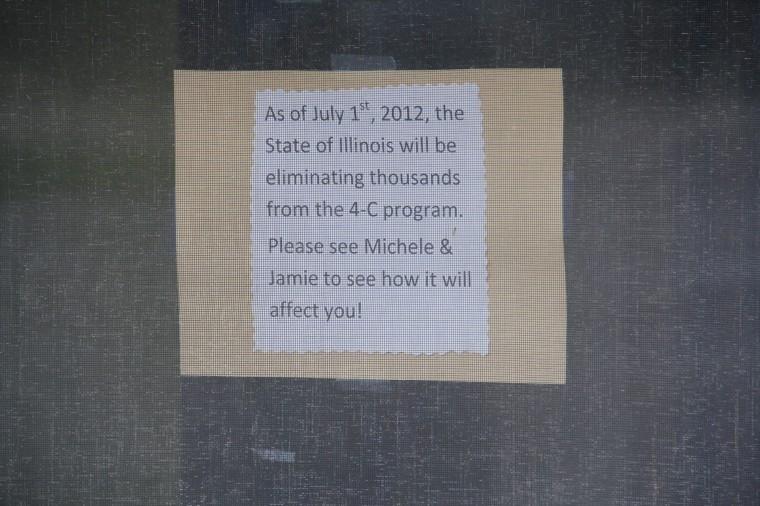Childcare providers face financial hardship
Once Upon A Time Child Care, 1778 W State St #C, In Sycamore is licensed by the Department of Child and Family Services to care for 78 children, age 6 weeks to kindergarten.
May 6, 2012
Payday will not be coming until July 1 for many child care providers in Illinois.
State funding has been exhausted for programs that subsidize childcare for low-income working parents. With no resources to cover the gap, day care centers and in-home providers alike are facing a crisis that may mean closing their doors permanently.
Child care providers received a letter from the Department of Human Serivces last week that said, “The Department of Human Services regrets to inform you that there is not enough money in the state budget to pay for child care services for the rest of the fiscal year ending June 30, 2012.”
There are 36 early care and education facilities and 112 family child care providers in DeKalb county alone, said Micki Chulick, the executive director of Community Coordinated Child Care (4-C).
“For home providers, this is their livelihood,” Chulick said. “Our staff called every program that receives more than 50 percent of their funding from state subsidies and without a doubt they said that cannot make it three months.”
A non-profit social service agency, 4-C, provides resources and assistance to families in need of child care. The organization serves six counties.
According to the state budget for fiscal year 2012, there are an estimated 87,900 families being served through child care assistance programs in Illinois every month. Legislators are working to find a solution, but the programs in question are served by the same funds as other assistance programs, like Temporary Assistance for Needy Families (TANF).
“Clearly the state is choosing to use the money we appropriated for those programs for other programs,” said State Rep. Robert Pritchard, R-Hinckley. “They’re a hand-to-mouth operation. This is going to close down those daycare centers. Their concerns are real.”
Pritchard said child care and early education programs are facing cuts now and into the future due to insufficient funding and mismanagement of the resources available. He also said legislators should be making an announcement early this week regarding possible alternatives to fund the programs.
“Our attitude is that we’ve spent, borrowed and delayed payment too long,” Pritchard said. “Now is the time to live within your revenue and manage the dollars that are appropriated. That is what the governor has not done and that is why we are in this situation.”
If child care centers close their doors due to insufficient funding, families receiving assistance are not the only ones who will be affected. Fareed Haque, associate music professor at NIU and owner of The House cafe, and his wife, a graduate assistant at NIU, have children that attend a day care facility in DeKalb that faces possible closure due to the lack of funds.
“It’s blatantly unethical to cut off payment,” Haque said. “That would be like NIU professors being told, ‘We can’t pay you for three months.’”
Haque said his family is fortunate to have some extra money they could divert to finding a different child care provider, but his wife could be forced to give up her assistantship to stay home with the kids.
“Friends of our kids and our family who are funded for child care would be forced to quit their jobs,” Haque said. “If there’s no money for day care, that means no work, staying home, losing income and going even farther below the poverty level.”







